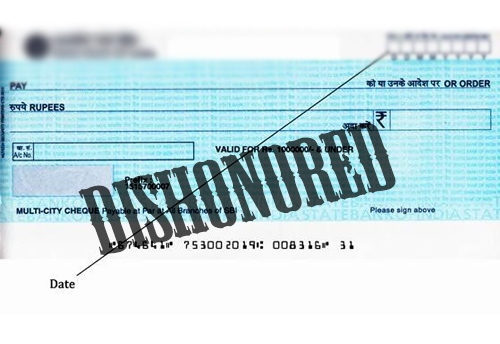Negotiable Instruments (Amendment), Act, 2018 gets Presidents assent; Courts can order 20% interim relief in cheque bounce cases
Updated: Aug 15, 2018 03:09:24pm

Negotiable Instruments (Amendment), Act, 2018 gets Presidents assent; Courts can order 20% interim relief in cheque bounce cases
New Delhi, Aug 15 (KNN) The Negotiable Instruments (Amendment), Act, 2018 has got assent from President Ram Nath Kovind after which under the cheque bouncing cases the Courts can now direct drawers to pay interim compensation to the payee. With the latest changes in the law, courts can also try such offences expeditiously.
The Federation of Indian Micro and Small & Medium Enterprises (FISME) has welcomed the move, however, has said that the provision to pay interim compensation to the complainant will have no impact on MSMEs as this bill was passed with a purpose to facilitate trade credit.
The Negotiable Instruments (Amendment) Bill, 2017 was introduced in Lok Sabha on January 2, 2018. It seeks to amend the Negotiable Instruments Act, 1881.
The Act defines promissory notes, bills of exchange, and cheques. It also specifies penalties for bouncing of cheques, and other violations with respect to such negotiable instruments.
The amendment aims to insert section 143A and Section 148 in the Act to provide that a court trying a cheque bounce offence under Section 138 may order the drawer of the cheque, if the drawer pleads not guilty, to pay interim compensation to the complainant.
The Bill inserts a provision allowing a court trying an offence related to cheque bouncing, to direct the drawer (person who writes the cheque) to pay interim compensation to the complainant. This interim compensation may be paid under certain circumstances, including where the drawer pleads not guilty of the accusation.
The interim compensation will not exceed 20% of the cheque amount, and will have to be paid by the drawer within 60 days of the trial court’s order to pay such a compensation.
Commenting on this, VK Aggarwal, Ex President FISME told KNN India that FISME had suggested this entire thing to finance ministry to facilitate trade credit which is much bigger and important than bank credit.
This will also provide quick resolution of bouncing of cheques, he added.
With this bill, the cheque will become more powerful and thus will reduce the possibilities of cheque bounce, said Aggarwal.
Further, the Bill has a provision that if the drawer is convicted and goes for an appeal, an additional 20 per cent compensation will have to be paid by the drawer. The amendment also provides that if the drawer is acquitted, the payee shall be required to repay the amount received as interim compensation with interest to the drawer.
The Bill also inserts a provision specifying that if a drawer convicted in a cheque bouncing case files an appeal, the appellate court may direct him to deposit a minimum of 20% of the fine or compensation awarded by the trial court during conviction.
This amount will be in addition to any interim compensation paid by the drawer during the earlier trial proceedings.
However, in case the drawer is acquitted (during trial or by the appellate court), the court will direct the complainant to return the interim compensation (or deposit in case of an appeal case), along with an interest. This amount will be repaid within 60 days of the court’s order.
The Negotiable Instruments Act, 1881 is applicable for the cases of dishonour of cheque. This Act has been amended many times since 1881.
According to Section 138 of the Act, the dishonour of cheque is a criminal offence and is punishable by imprisonment up to two years or with monetary penalty or with both. (KNN Bureau)











